In a world where gender equality continues to be a crucial issue, the women who break barriers are the ones who redefine the norms. In law, a field often dominated by men, the top female lawyers in India have emerged as formidable forces, advocating for justice and pioneering important legal reforms.
We are here to highlight the achievements of these trailblazing Indian female lawyers, whose dedication and expertise have not only advanced their careers but have also made substantial contributions to the legal landscape of India.
Top Female Lawyers in India
Following are the famous female lawyers of India, arranged in alphabetical order:
1. Anitha Shenoy
Anitha Shenoy is a distinguished advocate at the Supreme Court of India, noted for her specialization in constitutional law and public interest litigation.
Her career is marked by a commitment to addressing significant societal issues through the legal system, advocating for rights and justice in various high-profile cases.
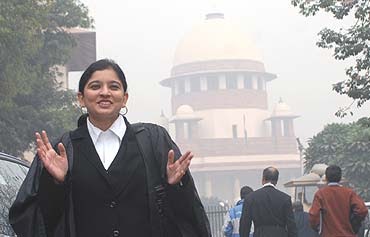
Known For:
Shenoy is particularly recognized for her expertise in constitutional challenges and her advocacy for human rights.
Her legal strategy often involves a deep analysis of constitutional provisions, making her a sought-after lawyer for cases that require nuanced legal arguments.
Anitha Shenoy Famous Cases:
- Right to Privacy: Anitha played a crucial role in the landmark case that established the right to privacy as a fundamental right under the Indian Constitution.
- Environmental Litigation: She has represented several cases focusing on environmental conservation, challenging policies that threaten ecological balance.
- Educational Reforms: Anitha has been involved in key cases concerning educational policies, advocating for fair and equitable access to education for all sections of society.
- Public Health: She argued in critical cases related to public health policies, including government accountability in healthcare services.
- Labor Rights: Anitha has defended the rights of workers in various industries, ensuring that labor laws are upheld and workers’ rights are protected.
Contributions:
Beyond her courtroom achievements, Anitha Shenoy contributes to the legal community by engaging in academic discussions, writing scholarly articles, and speaking at national legal forums.
She is committed to mentoring young lawyers, emphasizing the importance of legal ethics and the role of lawyers in upholding democracy.
Must Know: Scope of Law in India
2. Deepika Singh Rajawat
Deepika Singh Rajawat is a prominent Indian female lawyer known for her commitment to human rights and justice. Born on January 1, 1980, she gained national and international recognition for her courageous legal advocacy in high-profile cases, particularly those involving sexual violence and women’s rights.
Education and Early Career
Deepika Singh Rajawat completed her law degree from Jammu University. From the beginning of her career, she has been passionate about defending the rights of the marginalized and fighting against injustice.
Notable Cases and Contributions
- Kathua Rape Case: Deepika Singh Rajawat came into the limelight for her role in the Kathua rape case in 2018. She represented the family of an 8-year-old girl who was brutally raped and murdered in Kathua, Jammu and Kashmir. Despite facing severe threats and social ostracism, Rajawat stood firm in her pursuit of justice for the victim.
- Advocacy for Women’s Rights: Rajawat has been a staunch advocate for women’s rights. She has been involved in numerous cases involving domestic violence, sexual harassment, and discrimination against women. Her work has been instrumental in raising awareness about gender-based violence and advocating for stronger legal protections for women.
- Human Rights Activism: Deepika Singh Rajawat is actively involved in human rights activism. She is the chairperson of Voice for Rights, an NGO dedicated to promoting human rights and providing legal aid to the underprivileged. Through her NGO, she has been working to ensure access to justice for those who cannot afford legal representation.
Personal Impact and Legacy
Deepika Singh Rajawat’s fearless pursuit of justice, often in the face of personal danger, has made her a symbol of hope and resilience. Her efforts have not only brought justice to individual victims but have also contributed to broader societal changes in the perception and treatment of sexual violence cases.
3. Flavia Agnes
Flavia Agnes is a prominent lawyer and women’s rights activist in India, renowned for her pioneering work in the field of feminist legal research and advocacy.
Her efforts are particularly focused on marital, domestic, and sexual violence against women, making significant strides in reforming family law to better protect women’s rights.
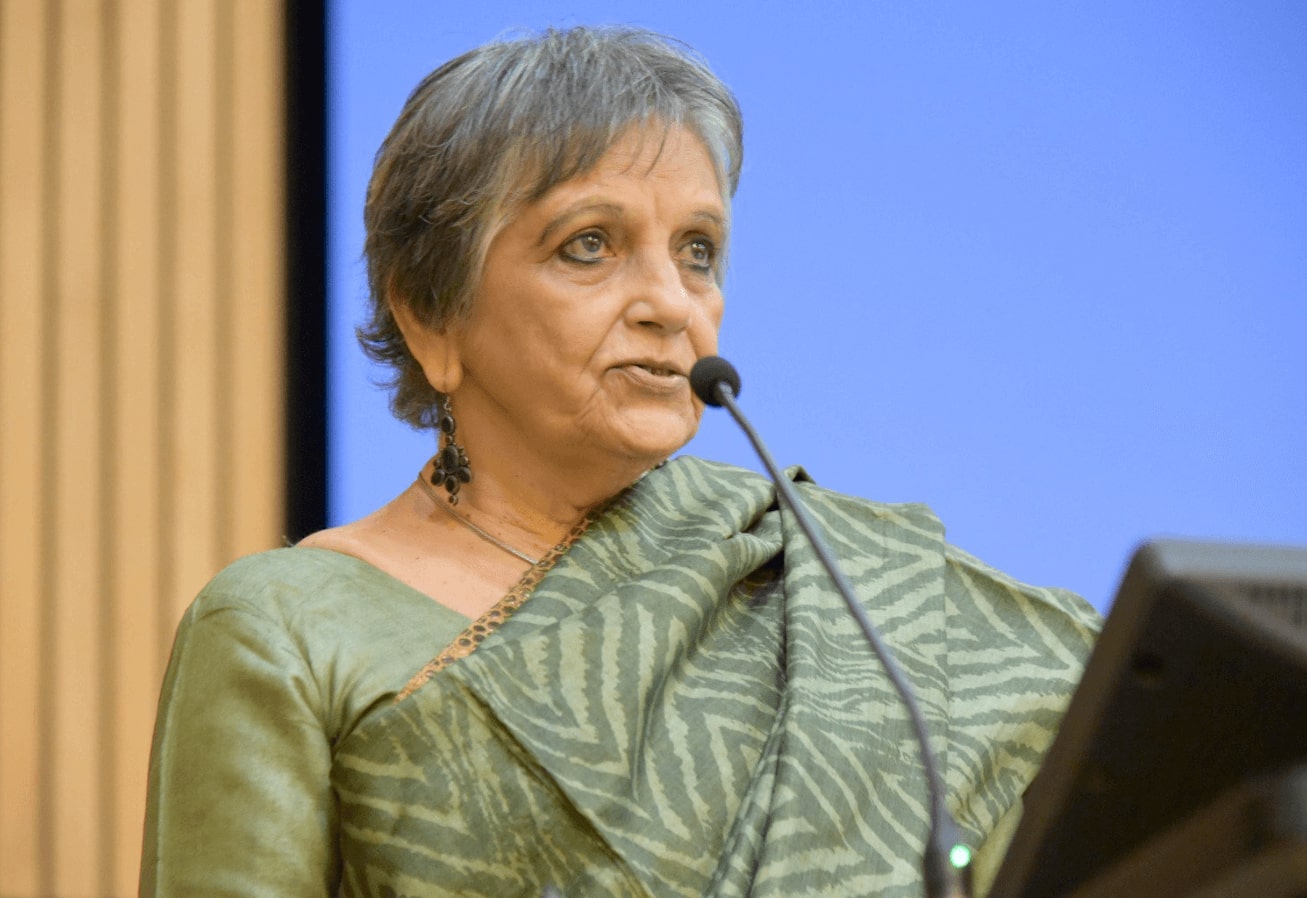
Known For:
Agnes specializes in family law and is a leading advocate for gender equality within the legal framework. She has been instrumental in advocating for legal reforms to protect women from domestic violence and to ensure their rights in matrimonial disputes.
Flavia Agnes Famous Cases:
- Mary Roy Case: Flavia Agnes was involved in this landmark case, which led to the Supreme Court granting Syrian Christian women equal rights to their paternal property.
- Muslim Women’s Rights Cases: She has handled numerous cases involving the rights of Muslim women, advocating for their rights within the personal law framework and challenging discriminatory practices.
- Domestic Violence Law Advocacy: Agnes played a crucial role in shaping the Protection of Women from Domestic Violence Act, 2005, which provides comprehensive legal protection for women facing domestic abuse.
- Marital Rape Awareness: She has been a vocal advocate for the recognition of marital rape as a crime under Indian law, participating in various platforms to raise awareness and push for legislative change.
- Legal Aid for Women: Flavia Agnes has facilitated numerous legal aid workshops and sessions specifically aimed at empowering women to understand and fight for their legal rights.
Contributions:
Flavia Agnes co-founded Majlis, a legal and cultural resource center that offers legal initiatives aimed at protecting women’s rights.
Through Majlis, she has implemented numerous training programs for lawyers and activists, focusing on issues related to gender and law. Her publications and research on feminist jurisprudence are widely respected and have influenced policy-making and academic discourse.
Suggested reading: Highest-Paying Fields of Law in India
4. Geeta Luthra
Geeta Luthra is a distinguished senior advocate in the Supreme Court of India, known for her expertise in criminal law, family law, and arbitration.
With a career spanning several decades, Luthra has been among the best female lawyers in India. She has represented a diverse clientele, ranging from corporate entities to individual litigants, and has been involved in many landmark cases.
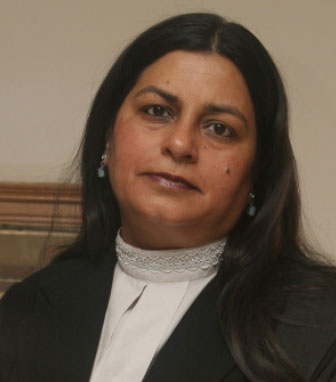
Known For:
Advocate Geeta Luthra is recognized for her sharp legal acumen in handling complex cases that often involve intricate legal principles.
Her practice areas include matrimonial disputes, custody battles, criminal defense, and commercial arbitration, making her a versatile and highly respected figure in the legal community.
Geeta Luthra Famous Cases:
- 2G Spectrum Case: Luthra was involved in this high-profile corruption case, representing some of the accused in one of the largest alleged financial irregularities in India.
- Sarla Mudgal Case: This landmark case dealt with the legal complexities of religious conversion and bigamy under Hindu law.
- Adultery Law Challenge: She was part of the legal team that argued against the constitutionality of the adultery law in India, which was ultimately struck down by the Supreme Court.
- Tarun Tejpal Sexual Assault Case: Luthra provided legal counsel in this sensitive case, highlighting her expertise in handling cases involving allegations of sexual misconduct.
- Child Custody Cases: She has a strong reputation for effectively handling sensitive child custody disputes, ensuring the best interests of the child are prioritized.
Contributions:
Apart from her court representations, lady advocate Geeta Luthra is actively involved in legal education and has been a speaker at various national and international conferences.
She regularly conducts workshops and seminars on legal issues, aiming to mentor young lawyers and law students. Luthra also contributes articles to prestigious legal journals and public discussions, enhancing the discourse on legal reforms and rights advocacy.
5. Indira Jaising
Indira Jaising is a famous female lawyer in India who has been working for many years to help people, especially women, through the law.
She was the first woman to become an Additional Solicitor General of India, a very important job in the country’s law system. She has fought for the rights of people in many big court cases and has helped change laws to make them fairer for everyone.
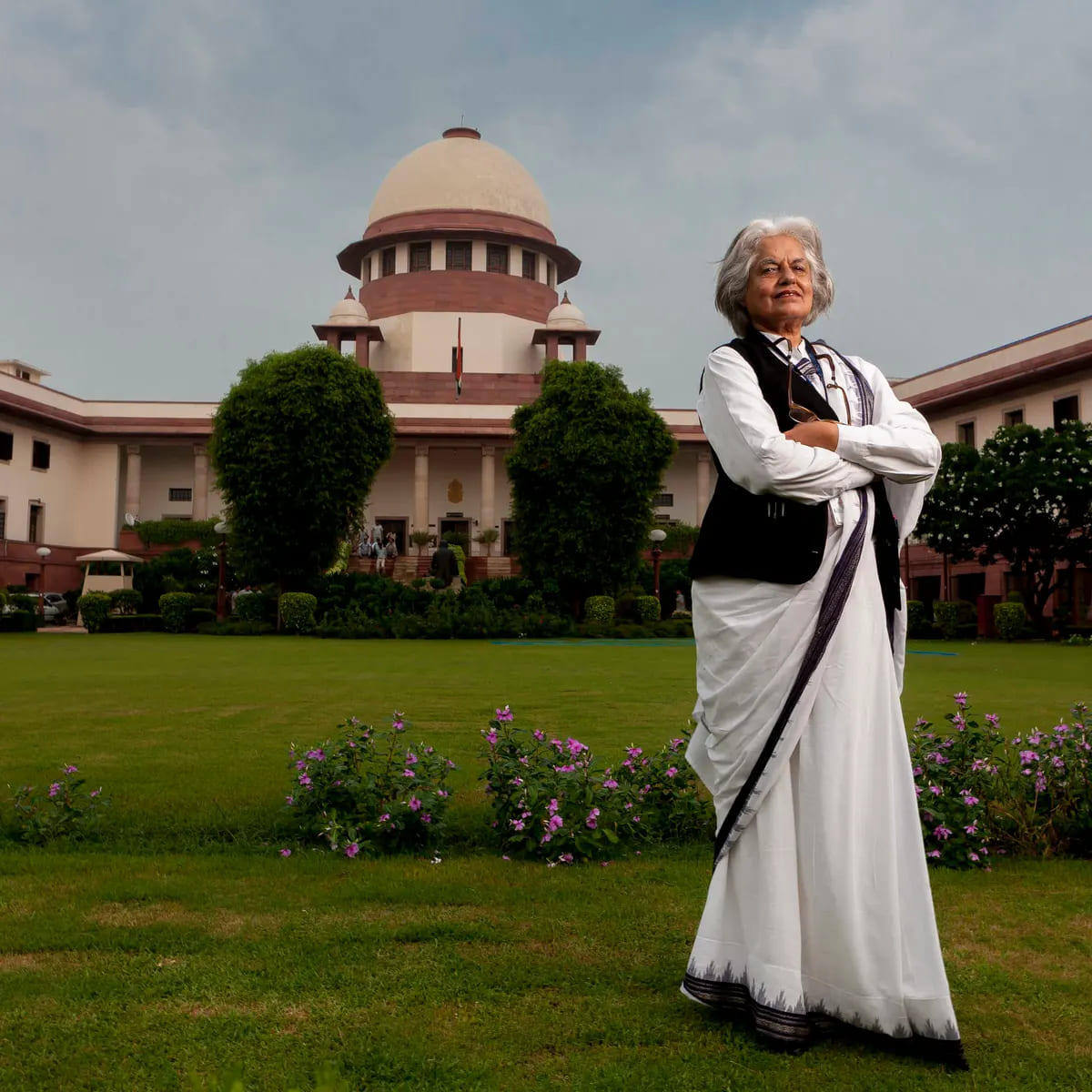
Why Lawyer Indira Jaising is Famous?
Indira Jaising is well-known for her work in making sure people are treated fairly by the law, helping to protect the environment, and standing up for women’s rights.
She fights hard in court to make sure everyone gets a fair chance.
Famous Cases of Indira Jaising:
- Vishaka vs. State of Rajasthan (1997): In this case, she helped make rules to stop women from being treated badly at work.
- Githa Hariharan vs. Reserve Bank of India (1999): She helped a mother be recognized as a guardian of her child, just like fathers.
- Mary Roy vs. State of Kerala (1986): Because of this case, Christian women in Kerala could inherit property just like men.
- Bhanwari Devi Case (1995): She worked to get justice for Bhanwari Devi, a woman who was treated very badly, and this led to new laws against sexual harassment.
- Olga Tellis vs. Bombay Municipal Corporation (1985): She fought for the rights of people living on the streets to have a place to live and work.
Contributions:
Indira Jaising has written many articles and speaks often about how the law can help make society better.
As the top female lawyer in India, she helps teach others about rights and laws, and works with groups that try to make sure laws are fair for everyone. She also helped start an organization called Lawyers Collective that works on these issues.
Must Read:
How to Become a Lawyer in India?
6. Kamini Jaiswal
Kamini Jaiswal is a highly respected senior advocate at the Supreme Court of India, known for her tenacious advocacy in public interest litigation, particularly in the fields of human rights, environmental law, and government accountability.
Her legal practice is characterized by a deep commitment to justice and integrity.
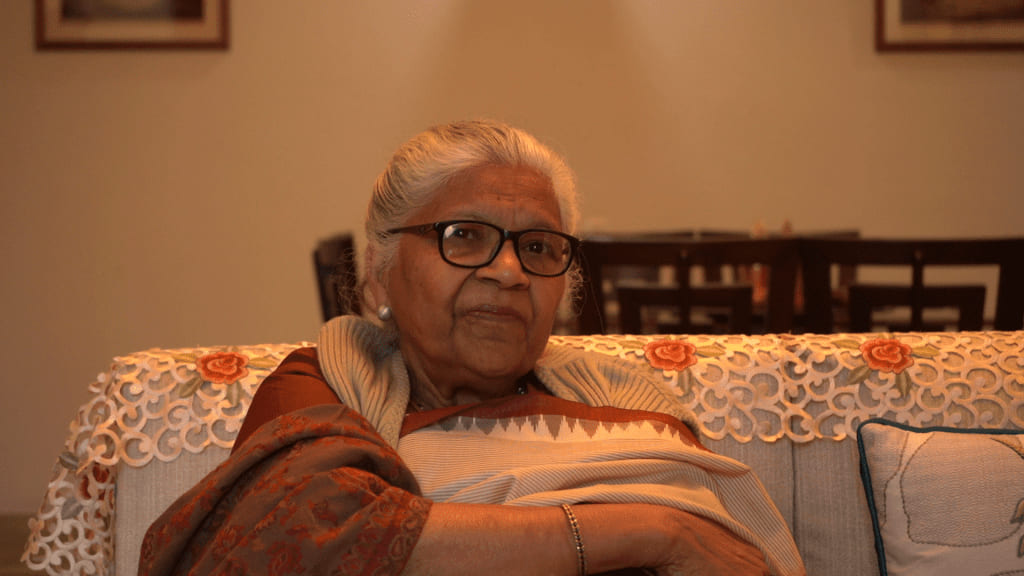
Known For:
Jaiswal’s legal expertise spans several decades, during which she has handled some of the most challenging and high-stakes cases in India. As one of the best female lawyers in India, she is particularly renowned for her work in ensuring transparency in governance and her efforts to uphold human rights.
Kamini Jaiswal Famous Cases:
- 2G Spectrum Scam: Kamini Jaiswal was instrumental in pursuing legal action in the 2G spectrum case, advocating for accountability and transparency in governmental procedures.
- Coal Allocation Scam: She represented petitions that sought judicial scrutiny into irregularities in the allocation of coal blocks by the government.
- Medical Admission Bribery Case (Prasad Education Trust case): Jaiswal took a strong stand against corruption in medical admissions, leading to significant legal proceedings regarding bribery and corruption in higher education.
- Environmental Litigation: She has been involved in numerous environmental cases, advocating for stringent environmental regulations and actions against industrial pollution.
- Right to Information (RTI) Activism: Kamini has been a fervent supporter of the RTI Act, utilizing it as a tool to enhance transparency and fight corruption in public offices.
Contributions:
Apart from her legal practice, Kamini Jaiswal contributes significantly to legal education and public discourse. She frequently participates in seminars, delivers lectures at universities, and writes extensively on issues of law, governance, and social justice.
Her efforts extend beyond the courtroom to include advocacy for legal reforms and policy changes that benefit the public at large.
7. Karuna Nundy
Karuna Nundy is an acclaimed female advocate in India, known for her strong advocacy in the Supreme Court and her commitment to human rights, gender justice, and constitutional law.
Nundy has gained international recognition for her legal prowess and her efforts to bring progressive changes through the legal system in India.
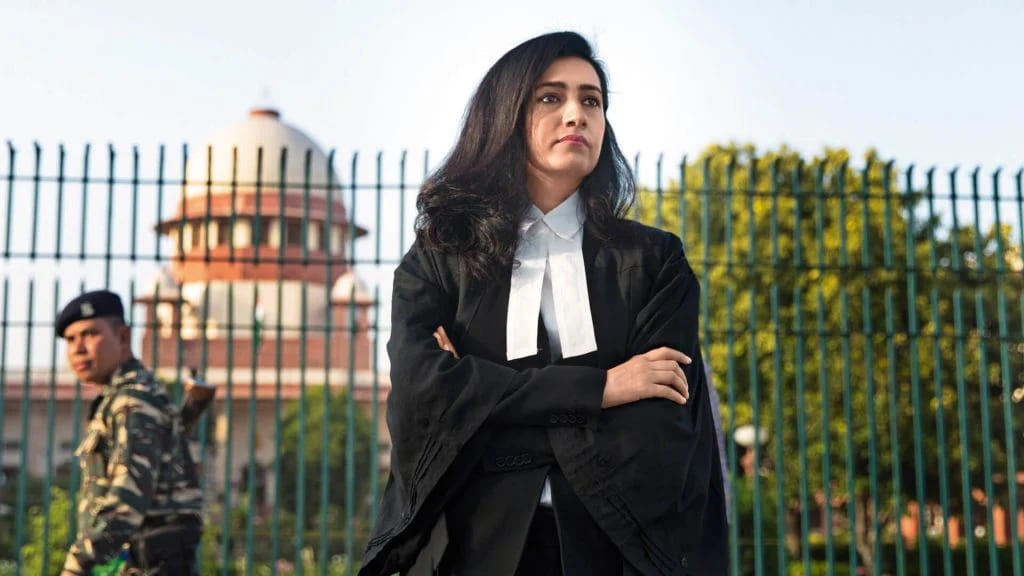
Known For:
Karuna Nundy specializes in constitutional law, commercial litigation, and media law.
She is particularly noted for her dedication to defending human rights and has been involved in drafting significant legal frameworks, including anti-rape laws post the 2012 Delhi gang rape case.
Karuna Nundy Famous Cases:
- Supreme Court Guidelines on Sexual Harassment at the Workplace: Nundy was instrumental in framing and fighting for comprehensive guidelines to prevent sexual harassment in the workplace.
- Shreya Singhal vs. Union of India (2015): She was part of the legal team that challenged Section 66A of the IT Act, which was eventually struck down by the Supreme Court for being unconstitutional and a threat to freedom of speech.
- Bhopal Gas Tragedy Case: Nundy has represented victims of the 1984 Bhopal Gas Tragedy, advocating for better compensation and medical facilities.
- Right to Privacy Case (2017): She contributed to the landmark judgment that declared the right to privacy as a fundamental right under the Indian Constitution.
- Anti-Section 377 Petition: Karuna Nundy was also active in the legal challenge against Section 377, advocating for LGBTQ+ rights in India.
Contributions:
Beyond her courtroom achievements, Karuna Nundy is an influential public speaker and media commentator.
As the top female lawyer in India, she often addresses issues of social justice, women’s rights, and legal ethics at various national and international platforms, enhancing public understanding of the law.
Nundy also provides pro bono legal aid to those in need and works closely with NGOs to impact policy change.
Related Topics: Best Novels for Law Students
8. Meenakshi Arora
Meenakshi Arora is a senior advocate at the Supreme Court of India, renowned for her solid expertise in constitutional law, human rights, and environmental law.
Her legal career is marked by significant contributions to the advancement of legal standards and human rights in India.
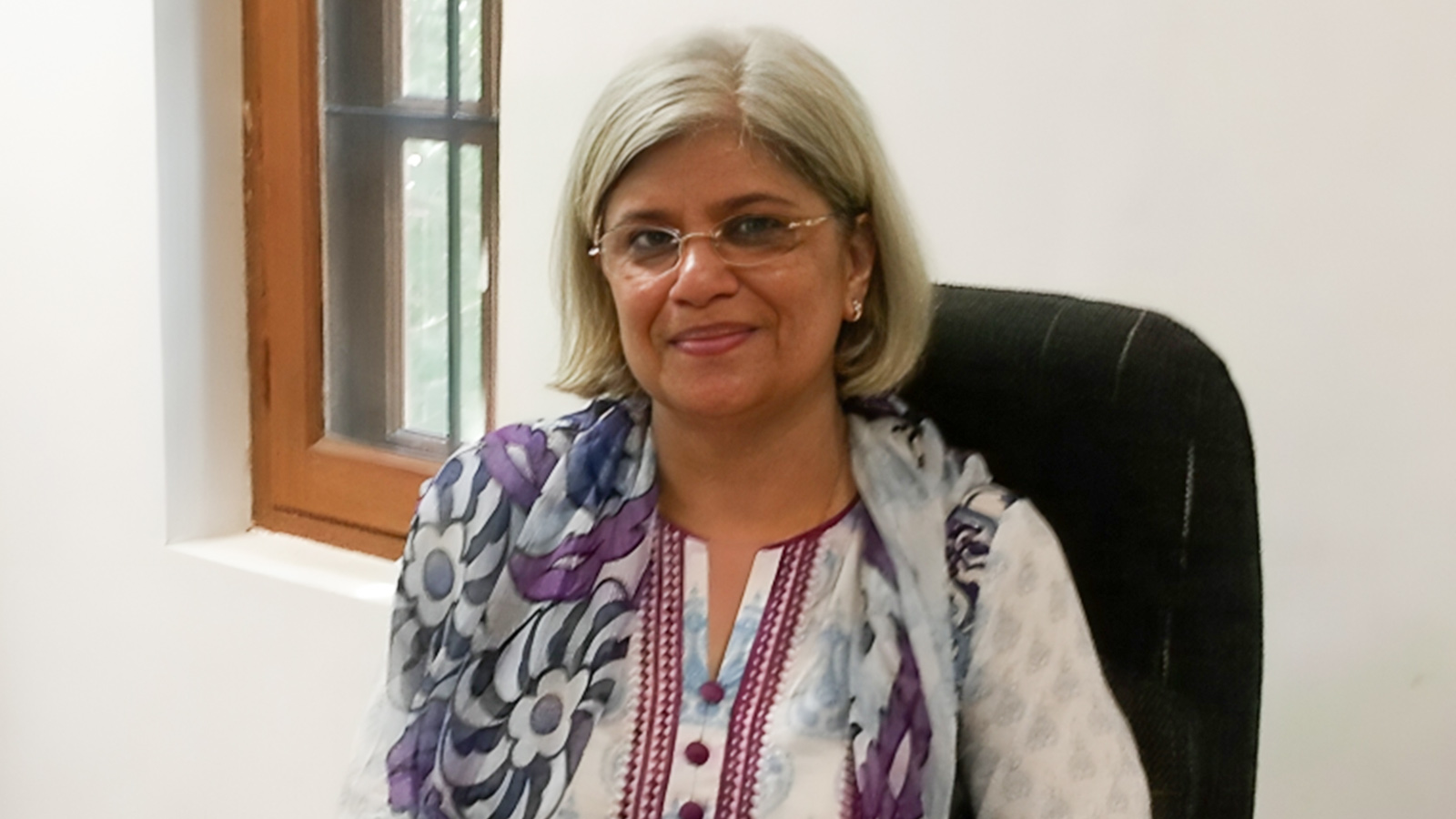
Known For:
As the top female lawyer in India, Meenakshi Arora is particularly noted for her articulate legal arguments and her ability to handle complex constitutional cases.
She has a strong focus on civil liberties, gender justice, and environmental protection, making her a key advocate for public interest litigation.
Meenakshi Arora Famous Cases:
- Right to Privacy Case (2017): Meenakshi Arora played a crucial role in this landmark case where the Supreme Court recognized privacy as a fundamental right under the Indian Constitution.
- Environmental Cases: She has been involved in several crucial cases related to environmental conservation, advocating for stringent measures against industrial pollution and habitat destruction.
- Decriminalization of Homosexuality: Arora was part of the legal team that worked towards the decriminalization of homosexuality in India, a significant step towards LGBTQ+ rights.
- Sabarimala Temple Case: She represented parties in the controversial case regarding women’s entry into the Sabarimala Temple, addressing issues of tradition and gender equality.
- Free Speech Advocacy: Meenakshi has defended multiple cases related to freedom of speech and expression, ensuring that civil liberties are not compromised under the guise of state security.
Contributions:
Beyond litigation, Meenakshi Arora is an influential voice in legal education, often participating in discussions and seminars across the country.
She contributes to legal literature and is a frequent commentator on public affairs and legal rights in various media outlets. Arora is also actively involved in mentoring young lawyers, encouraging them to pursue careers in human rights and public interest law.
9. Meenakshi Lekhi
Meenakshi Lekhi is a distinguished lawyer and politician in India, known for her dynamic presence in both the legal and political arenas.
Born on April 30, 1967, she has built a multifaceted career as a legal expert, a parliamentarian, and a vocal advocate for women’s rights and social justice.
Education and Early Career
Meenakshi Lekhi completed her law degree from the Faculty of Law, University of Delhi. She began her legal career practicing at the Supreme Court of India, Delhi High Court, and several tribunals. Her legal expertise spans various fields, including constitutional law, labor law, and criminal law.
Notable Cases and Contributions
- Social Activism and Legal Advocacy: Before her foray into politics, Lekhi was involved in several high-profile legal cases and social activism. She has represented various clients in cases related to human rights, gender justice, and civil liberties. Her work as a lawyer has often intersected with her commitment to social causes.
- Nirbhaya Case: Meenakshi Lekhi played a significant role in the aftermath of the 2012 Delhi gang rape case, commonly known as the Nirbhaya case. She was part of the legal and public discourse advocating for stricter laws and better protection for women. Her contributions helped shape the Criminal Law (Amendment) Act, 2013, which introduced harsher penalties for crimes against women.
- Political Career: Lekhi entered politics as a member of the Bharatiya Janata Party (BJP). She was elected to the Lok Sabha, the lower house of India’s Parliament, representing the New Delhi constituency. As a parliamentarian, she has been active in legislative debates and has contributed to several key bills and policies, particularly those related to women’s rights and social justice.
- Committee Roles and Leadership: In Parliament, Meenakshi Lekhi has served on various committees, including the Standing Committee on Personnel, Public Grievances, Law and Justice, and the Joint Committee on the Insolvency and Bankruptcy Code. Her leadership roles have allowed her to influence policy-making and legal reforms.
- Advocacy for Women’s Rights: Throughout her career, both as a lawyer and politician, Lekhi has been a strong advocate for women’s rights. She has worked on initiatives aimed at empowering women, combating gender-based violence, and promoting gender equality.
Personal Impact and Legacy
Meenakshi Lekhi’s career is marked by her dedication to justice, her commitment to public service, and her advocacy for women’s rights.
She has effectively bridged the gap between law and politics, using her legal acumen to inform her legislative work and her political platform to advance social justice.
Suggested: Must Watch Web Series for Law Students
10. Menaka Guruswamy
Menaka Guruswamy is among the most respected female lawyers in India who has gained recognition for her passionate advocacy in the Supreme Court of India.
She is known for her dynamic presence in court and her dedication to public interest litigation, particularly cases that address social injustices and constitutional rights.
Guruswamy has been instrumental in challenging laws and practices that discriminate against people, making her a prominent figure in the field of law and justice.
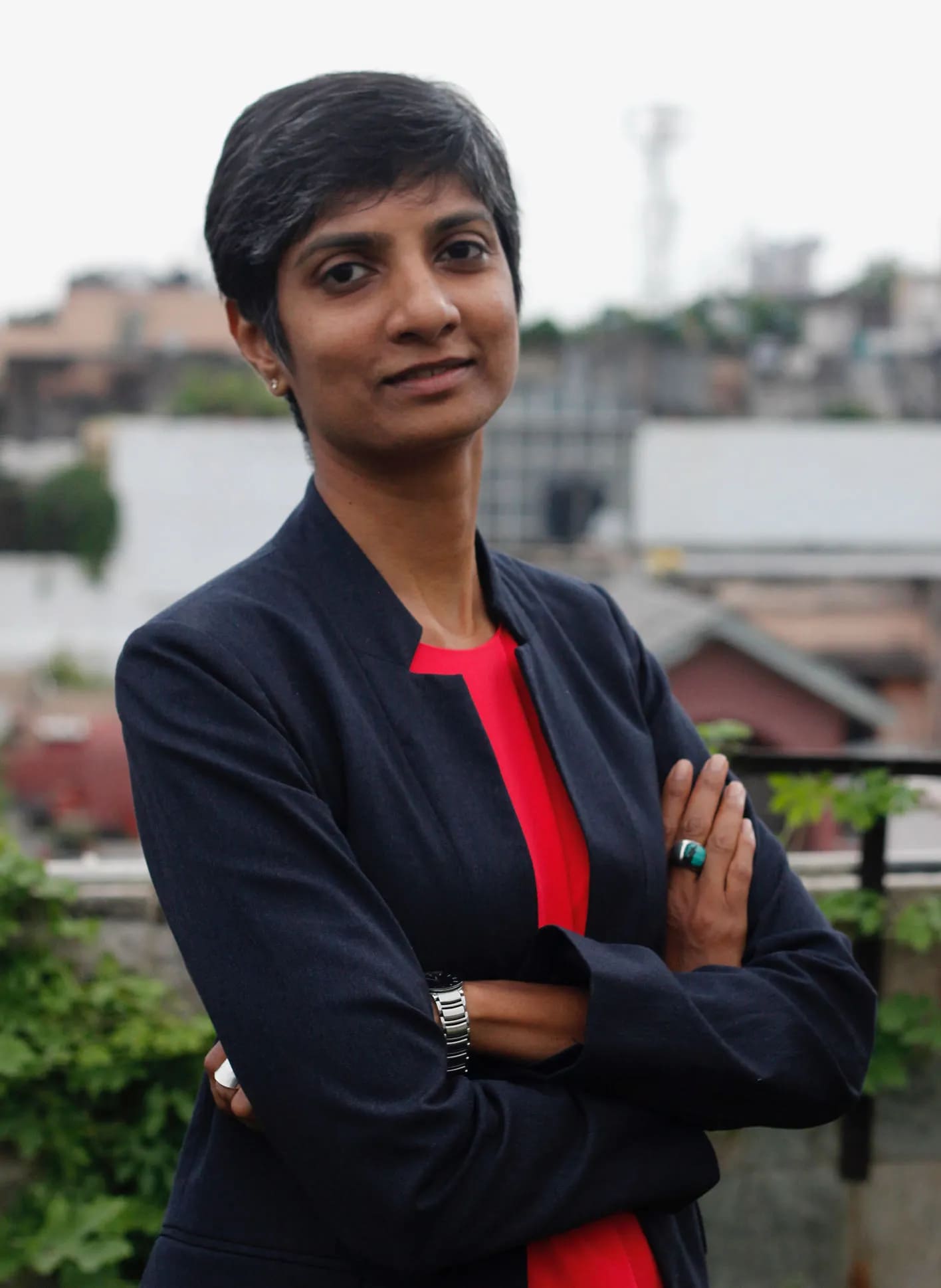
Why Lawyer Menaka Guriswamy is Famous?
Menaka Guruswamy specializes in constitutional law and has played a crucial role in several landmark judgments that have shaped Indian jurisprudence.
She is particularly noted for her commitment to fighting for equality and her ability to handle complex legal issues with clarity and conviction.
Famous Cases of Menaka Guruswamy
- Navtej Singh Johar vs. Union of India (2018): Guruswamy argued against Section 377 of the Indian Penal Code, which criminalized homosexual acts. Her efforts were pivotal in the Supreme Court’s decision to decriminalize homosexuality, marking a significant victory for LGBTQ+ rights in India.
- Joseph Shine vs. Union of India (2018): She challenged the constitutionality of the adultery law under Section 497 of the IPC, which eventually led to its decriminalization, enhancing gender equality in marital laws.
- Independent Thought vs. Union of India (2017): Guruswamy’s advocacy contributed to a landmark decision where the court recognized the rights of minors in marital relationships, leading to a change in the exception under the rape law regarding married girls.
- Ramachandra Guha vs. Union of India (2015): In this case, she helped defend historical accuracy and freedom of expression in academic texts against ideological censorship.
- Common Cause (A Regd. Society) vs. Union of India (2018): She was part of the team that argued for the recognition of living wills and passive euthanasia in India.
Contributions:
Beyond the courtroom, Menaka Guruswamy is an influential speaker and writer who often addresses issues of law, democracy, and human rights.
Listed among the best female lawyers in India, she has taught at several prestigious universities and contributes to legal education by mentoring young lawyers and law students.
11. Mishi Choudhary
Mishi Choudhary is a prominent advocate at the Supreme Court of India and a legal director at the Software Freedom Law Center. Known for her expertise in technology law and intellectual property rights, Mishi has been at the forefront of legal battles concerning digital freedoms and online privacy.
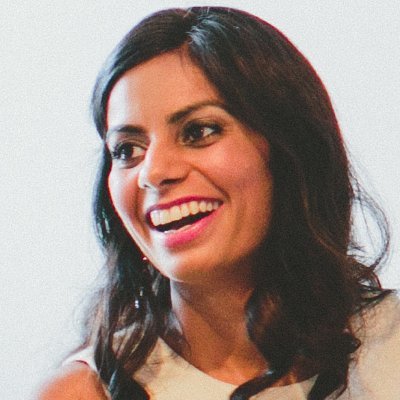
Known For:
Choudhary is highly regarded for her work in technology law, particularly in the areas of internet governance, data protection, and the rights of software developers.
Her advocacy extends to promoting open-source software and defending digital rights in the face of increasing surveillance and censorship.
Mishi Choudhary Famous Cases:
- Defense of Internet Freedom: Mishi has been involved in several cases that defend the freedom of the Internet in India, including challenges against Internet shutdowns and censorship.
- Privacy and Data Protection: She has represented various stakeholders in cases related to privacy policies and data protection laws, ensuring that personal data is handled in compliance with legal standards.
- Open Source Software Litigation: Mishi has defended the rights of open-source software developers in numerous cases, promoting the use of open and free software in technology development.
- Intellectual Property Rights: She has argued against restrictive intellectual property laws that hinder innovation and access to technology.
- Net Neutrality: Mishi has actively campaigned for net neutrality in India, ensuring equal access to the internet without discrimination by service providers.
Contributions:
In addition to her legal practice, Mishi Choudhary frequently lectures at universities and conferences around the world on issues related to technology law and digital rights.
She writes extensively on these topics, contributing to both national and international publications. Mishi also provides legal support to technology startups and has been instrumental in setting up legal clinics to offer free advice on technology law.
12. Pinky Anand
Pinky Anand is a distinguished and top female lawyer in India and a former Additional Solicitor General of India.
She has had a successful career in law, representing the government in various high-profile cases and making significant contributions to legal reform and justice.
Anand is known for her sharp legal acumen and her ability to handle complex legal challenges effectively.
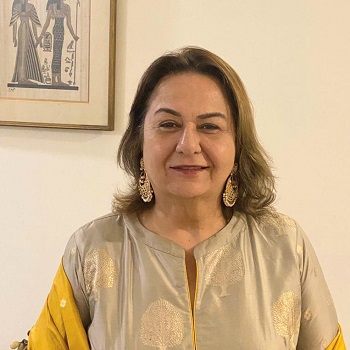
Known For:
Pinky Anand’s expertise includes constitutional law, family law, and environmental law.
She has a strong presence in the Supreme Court and other high courts across India, where she has defended important cases involving government policies and human rights.
Pinky Anand Famous Cases:
- Taj Corridor Case (2003): Anand played a key role in this case involving allegations of environmental violations near the Taj Mahal.
- Jessica Lal Murder Case: She was involved in the prosecution of this notorious case, which highlighted the influence of public opinion in India’s judicial process.
- Padmanabhaswamy Temple Case: Anand represented the interests of the Travancore Royal Family in a case concerning the management and affairs of the historic temple.
- Keshav Suri vs. Union of India (2018): She supported the fight against Section 377, contributing to its eventual decriminalization.
- National Anthem Case: Anand argued for the mandatory playing of the National Anthem in cinemas, a directive that was later revisited and modified by the Supreme Court.
Contributions:
Pinky Anand’s contributions to legal practice and public policy have been widely recognized. She actively participates in public debates and discussions on legal issues, often speaking at national and international forums to advocate for legal and judicial reforms.
Anand also engages in educational activities, delivering lectures and writing extensively on legal topics.
13. Rebecca John
Rebecca John is one of India’s leading criminal lawyers, with a robust reputation for her meticulous approach to complex criminal litigations. She has been involved in several high-profile cases that have significant implications for criminal law in India.
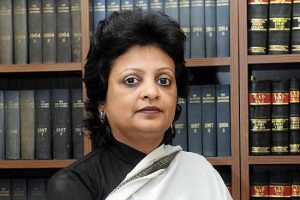
Known For:
Indian female lawyer Rebecca John is renowned for her expertise in criminal defense, handling cases ranging from murder and corruption to financial fraud.
Her strong advocacy skills and deep understanding of criminal law make her a formidable presence in the courtroom.
Rebecca John Famous Cases:
- Aarushi Talwar Murder Case: John represented the Talwar couple, helping to challenge the evidence and question the investigation methods used, which eventually led to their acquittal.
- Sreesanth Spot Fixing Case: She defended cricketer S. Sreesanth in the 2013 IPL spot-fixing scandal, where her legal acumen was crucial in overturning his life ban.
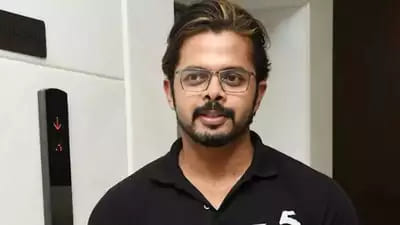
- Jessica Lal Murder Retrial: Rebecca John played a crucial role in the retrial of the Jessica Lal murder case, which resulted in the conviction of the accused after initial acquittals.
- Priya Ramani vs. MJ Akbar: She represented journalist Priya Ramani in a defamation case filed by former Union Minister MJ Akbar, which became a landmark case in India’s #MeToo movement.
- Unnao Rape Case: John was involved in this sensitive case, representing the victim against a powerful regional politician, which underscored her commitment to justice for women.
Contributions:
Beyond her courtroom achievements, Rebecca John is actively involved in legal education and advocacy, often speaking on issues related to criminal justice reforms, the rights of the accused, and the importance of fair trial standards.
As the top female advocate in India, she mentors young lawyers and law students, providing guidance on ethical legal practices and the nuances of criminal law.
14. Sunita Sharma
Sunita Sharma is a respected female advocate at the Supreme Court of India, recognized for her expertise in family law, matrimonial disputes, and women’s rights.
Her dedication to promoting justice and fairness in personal law has made significant contributions to the lives of many individuals, especially women facing legal challenges.
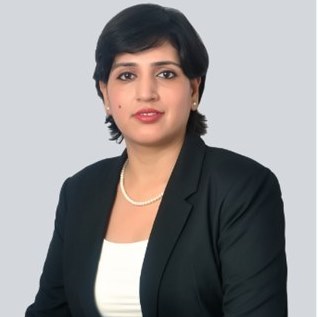
Known For:
Sharma’s legal practice is noted for its empathetic approach and thorough understanding of family law.
As a famous lady lawyer in India, she has a robust reputation for handling complex divorce cases, child custody disputes, and alimony negotiations with a focus on equitable resolutions that prioritize the welfare of all parties involved.
Sunita Sharma Famous Cases:
- Landmark Alimony Settlements: Sharma has successfully represented numerous clients in securing fair alimony settlements that reflect the economic contributions of women in marriages.
- Child Custody Battles: Her adept handling of sensitive child custody cases has ensured that the best interests of the children are always at the forefront of judicial decisions.
- Protection of Women from Domestic Violence: Sunita has been a strong advocate in cases involving domestic violence, helping victims obtain justice and necessary protective orders.
- Marital Property Rights: She has fought for the rights of women to marital property, ensuring that they receive their rightful share upon separation or divorce.
- Advocacy for Gender Equality in Family Law: Through her cases, Sharma has pushed for changes in the law to ensure more equitable treatment of women in family courts.
Contributions:
Sunita Sharma extends her influence beyond the courtroom through seminars and workshops aimed at educating women about their legal rights.
She is also involved in several non-profit organizations that work towards women’s empowerment and legal awareness. Sharma frequently contributes to legal journals and public debates on reforming family law in India.
15. Vinati Kastia
Vinati Kastia is a prominent female lawyer based in New Delhi, India, specializing in corporate law, intellectual property rights, and arbitration.
Her legal acumen and expertise have established her as a sought-after advisor for major corporations, both in India and internationally.
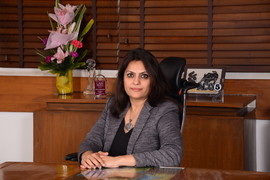
Known For:
Kastia is renowned for her deep expertise in handling complex corporate mergers, acquisitions, and intellectual property cases.
Her ability to navigate complicated legal landscapes and provide strategic counsel has helped numerous businesses achieve their objectives while ensuring legal compliance.
Vinati Kastia Famous Cases:
- High-Profile Corporate Mergers: Vinati has played a crucial role in several major mergers and acquisitions, providing legal due diligence and negotiation strategies.
- Intellectual Property Disputes: She has successfully represented leading companies in protecting their intellectual property rights, setting precedents in IP law.
- International Arbitration: Kastia has been involved in numerous international arbitration cases, representing global clients in disputes under various legal frameworks.
- Commercial Litigation: She has handled significant litigation cases for multinational corporations, involving contract disputes and regulatory compliance.
- Corporate Restructuring: Vinati has advised companies on restructuring processes to enhance operational efficiency and legal coherence.
Contributions:
Vinati Kastia is not only active in the courtroom but also in legal education and policy development. She regularly speaks at national and international forums on corporate law and intellectual property rights, contributing to the discourse on legal reforms in these areas.
She also mentors young lawyers, guiding them in their legal careers with a focus on ethical practices and professional growth.
Suggested Reading: Lawyer Ram Jethmalani: Fees, Top Cases, Career, Education, Books, All Details
16. Vrinda Grover
Vrinda Grover is a renowned female lawyer and human rights activist in India, recognized for her advocacy on behalf of women, minorities, and marginalized communities.
Her legal work focuses on cases related to human rights violations, gender-based violence, and criminal justice reform.
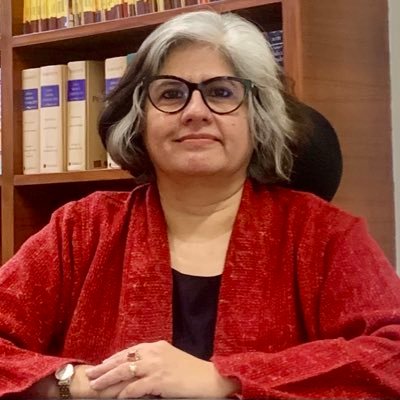
Known For:
Vrinda Grover’s expertise includes criminal law, human rights law, and constitutional law.
She has been a vocal advocate for legal reforms to improve the justice system and protect human rights in India. Grover is also known for her efforts to amend laws concerning sexual violence to make them more effective and victim-friendly.
Vrinda Grover Famous Cases:
- Soni Sori Case: Grover represented Soni Sori, an Adivasi school teacher in Chhattisgarh, who was falsely accused and tortured in custody. Her efforts highlighted police brutality and the abuse of power.
- Hashimpura Massacre Case: She played a significant role in this case where 42 Muslim men were killed by police in 1987. Grover’s persistence helped bring justice decades after the atrocities.
- Anti-Sikh Riots Case: Vrinda has been involved in legal battles seeking justice for the victims of the 1984 anti-Sikh riots.
- Zahira Sheikh Case (Best Bakery Case): Grover worked to secure justice for the victims of the communal riots in Gujarat in 2002, challenging the acquittal of the accused.
- Section 377 Case: She has also contributed to the legal discourse around the decriminalization of homosexuality in India, supporting LGBTQ+ rights.
Contributions:
Apart from her court appearances, Vrinda Grover is a prominent figure in public debates and discussions on law and justice.
She writes extensively for leading publications and participates in seminars and conferences aimed at legal education and advocacy. Grover also collaborates with various NGOs to push for policy changes that reinforce legal protections for vulnerable groups.
17. Zia Mody
Zia Mody is one of India’s most renowned corporate lawyers, celebrated for her expertise in corporate mergers and acquisitions, securities law, private equity, and project finance.
Born on July 19, 1956, she is the daughter of Soli Sorabjee, a former Attorney General of India. She is a founding partner of AZB & Partners, one of India’s leading law firms.
Education and Early Career
Zia Mody completed her Bachelor of Arts degree in Law from Selwyn College, Cambridge. She then pursued her Master of Laws (LLM) from Harvard Law School. After completing her education, she worked for a brief period at Baker & McKenzie in New York before returning to India to establish her legal practice.
Notable Cases and Contributions
- Corporate Mergers and Acquisitions: Zia Mody has been involved in some of the largest and most complex M&A deals in India. Her expertise in navigating regulatory frameworks has been crucial in the success of these transactions.
- Vodafone Tax Case: One of the most high-profile cases she has been involved in is the Vodafone tax case. She represented Vodafone in the legal battle over a $2 billion tax claim by the Indian government, which was a landmark case in international taxation and investment law.
- Legal Reforms and Policy Advocacy: Zia Mody has played a significant role in shaping corporate governance and legal reforms in India. She has been a vocal advocate for improving the legal and regulatory environment to foster business growth and transparency.
- Board Memberships and Advisory Roles: Mody serves on several prestigious boards and committees, including the Confederation of Indian Industry (CII) and the National Stock Exchange (NSE). Her insights and expertise are highly sought after in both legal and corporate circles.
- Awards and Recognitions: Over the years, Zia Mody has received numerous awards and accolades for her contributions to the legal field. She has been consistently ranked as a top lawyer in India and has been recognized by various international legal publications.
Personal Impact and Legacy
Zia Mody’s influence extends beyond her legal practice. She is a mentor and role model for many aspiring lawyers, particularly women in the legal profession. Her success story is an inspiration, highlighting the possibilities of achieving excellence in a challenging and competitive field.
Notable Women in Law in India and Their Contributions
Cornelia Sorabji: First Woman Lawyer in India
Cornelia Sorabji was the first woman to practice law in India and Britain. Born in 1866, she was the first woman to graduate from Bombay University and also the first woman to study law at Oxford University. She worked tirelessly to provide legal aid to purdahnashin women (women in seclusion).
Mithan Jamshed Lam
Mithan Jamshed Lam was among the first women to be called to the bar in England. She returned to India to practice law and played a significant role in advocating for women’s rights and social reforms.
Violet Alva
Violet Alva was the first woman to hold the position of Deputy Chairman in the Rajya Sabha, India’s upper house of Parliament. She was also a prominent lawyer, social worker, and politician, known for her work in advancing women’s issues and legal reforms.
Sheila Didi
Sheila Didi was one of the earliest women to be enrolled as an advocate in India. She broke many barriers in a predominantly male profession and inspired future generations of women lawyers.
Ananda Bai
Ananda Bai was one of the first women to practice law in India. She was known for her work in advocating for the rights of women and children, particularly in matters of family law and inheritance.
Anna Chandy: First Female Judge in India
Anna Chandy was the first female judge in India and one of the first in the British Commonwealth. She was appointed as a judge of the Kerala High Court in 1959, paving the way for future generations of women in the judiciary.
Mithan Tata Lam
Mithan Tata Lam was one of the first women barristers in India. She was a prominent advocate for social reform and worked extensively to improve the legal status of women, including participating in the drafting of laws related to women’s rights.
Fathima Beevi: First Female Judge of Supreme Court of India
Justice Fathima Beevi made history by becoming the first female judge of the Supreme Court of India in 1989. Her appointment was a significant milestone in the Indian judiciary, inspiring many women to pursue careers in law and justice.
History of Women in Law in India
The history of women in law in India is a story of struggle, perseverance, and eventual triumph in the face of substantial societal and professional barriers. Women’s journey in the Indian legal field began in the early 20th century, despite the legal profession being traditionally closed to them.
The first notable breakthrough came when Cornelia Sorabji became the first female graduate from Bombay University and the first woman to study law at Oxford University in the late 1800s.
However, despite her qualifications, Sorabji was initially not allowed to practice law in India due to prevailing legal restrictions. It wasn’t until 1923, following the Legal Practitioners (Women) Act, that women in India were permitted to practice law, allowing Sorabji and future generations to formally enter the profession.
In the years that followed, more women entered the legal profession, though their numbers remained small. Women like Anna Chandy, who became the first female judge in India in 1937, and Mithan Tata Lam, the first woman to practice law before the Bombay High Court, were pioneers who paved the way for future generations.
The post-independence era saw a slow but steady increase in the number of women lawyers and judges in India. Women like Justice Fathima Beevi, appointed as the first female judge of the Supreme Court of India in 1989, and others who achieved similar firsts, have played crucial roles in ensuring that the judiciary reflects the diversity of the society it serves.
Today, the participation of women in the Indian legal system has seen remarkable growth. Women hold significant positions across various levels of the judiciary and practice, shaping laws and policies while advocating for justice and equality.
Their journey reflects a broader change in the Indian legal landscape, emphasizing the critical role of women in fostering a just society.
Rise of Female Lawyers in India
The rise of female lawyers in India is a significant part of the country’s evolving legal landscape. Over the past few decades, women have increasingly entered the legal profession, breaking long-standing gender barriers and asserting their presence in a traditionally male-dominated field.
This shift is not just in numbers but also in the impact they have had on the practice and interpretation of law in India.
Initially, the legal profession in India was slow to open its doors to women. The few who entered faced substantial challenges, including bias and limited opportunities for advancement.
However, persistent efforts by pioneering women set the stage for subsequent generations. With each decade, more women graduated from law schools, joined legal practices, climbed up the ranks in law firms, or took up positions in the judiciary.
Today, women’s influence in the Indian legal system is more pronounced than ever. Female lawyers are not only serving as advocates and solicitors but also holding key positions as judges in high courts and the Supreme Court of India.
For instance, the appointment of Justice Indu Malhotra as the first woman lawyer to be directly appointed as a Supreme Court judge marks a notable milestone in the judiciary’s history.
Women have also been instrumental in shaping public policy and reforming laws related to gender equality, human rights, and domestic violence, among others. Their growing influence is seen in landmark cases and progressive judgments that have broadened the scope of justice and protection for marginalized communities.
The rise of female lawyers in India symbolizes a broader shift towards gender parity in the workforce. It reflects a changing societal attitude that values the contributions of women in all fields, including the legal profession.
As this trend continues, the impact of women in the Indian legal system is set to increase, promising a more inclusive and balanced approach to justice and law enforcement.
Young Female Lawyers in India
Below is a list of notable young female lawyers in India (age below 40), including their areas of expertise and contributions:
| Name | Areas of Expertise | Notable Contributions |
|---|---|---|
| Karuna Nundy | Constitutional law, human rights, commercial litigation | Advocate for women’s rights and freedom of speech; involved in the drafting of India’s anti-rape laws. |
| Menaka Guruswamy | Constitutional law, human rights | Key lawyer in the case that decriminalized homosexuality in India (Section 377 case); advocate for educational reforms and gender equality. |
| Arundhati Katju | Constitutional law, human rights, commercial litigation | Worked alongside Menaka Guruswamy in the Section 377 case; advocate for LGBTQ+ rights and women’s empowerment. |
| Vrinda Grover | Human rights, women’s rights, criminal law | Prominent human rights lawyer; represented victims of sexual violence and human rights violations; advocate for legal reforms to protect women and marginalized communities. |
| Pratibha Jain | Corporate law, mergers and acquisitions, regulatory affairs | Head of the Delhi office of Nishith Desai Associates; involved in significant corporate transactions and policy advocacy. |
| Apar Gupta | Technology law, digital rights, constitutional law | Executive Director of the Internet Freedom Foundation; advocate for digital rights, privacy, and freedom of expression online. |
| Malavika Rajkotia | Family law, matrimonial disputes, human rights | Renowned family law practitioner; author of “Intimacy Undone” which explores the legal and emotional aspects of family law in India. |
| Sana Khan | Criminal law, women’s rights, human rights | Advocate for survivors of sexual violence and domestic abuse; involved in various legal aid and human rights initiatives. |
Famous Female Lawyers Who Are NLU Graduates
Many women who have cleared the Common Law Admission Test (CLAT) and graduated from NLUs (National Law Universities) have gone on to make significant contributions to the legal field.
For example:
- Karuna Nundy: A prominent Supreme Court lawyer known for her work in constitutional law and human rights.
- Menaka Guruswamy: An advocate who played a pivotal role in the decriminalization of homosexuality in India.
- Arundhati Katju: Known for her advocacy in the Section 377 case alongside Menaka Guruswamy.
CLAT has undoubtedly played a crucial role in fostering the rise of female lawyers in India. By providing access to high-quality legal education, promoting merit-based admissions, and offering opportunities for leadership and professional growth, CLAT has empowered many women to pursue and excel in the legal profession.
This has not only contributed to greater gender diversity in law but has also strengthened the overall legal system in India.
Upcoming CLAT Exams:
FAQs About Indian Female Lawyers
Cornelia Sorabji was the first female lawyer in India, starting her practice in the 1920s. She was also the first woman to graduate in law from Bombay University and the first Indian national to attend a British University.
As of recent years, women constitute about 15% of the legal profession in India, a number that has been steadily increasing due to more women entering law schools and the profession.
Female lawyers in India have made significant contributions in various fields of law, including human rights, environmental law, corporate law, and public policy. They have been instrumental in landmark judgments and legal reforms that have shaped Indian jurisprudence.
Yes, organizations such as the Women in Law and Litigation (WILL), Indian Federation of Women Lawyers (IFWL), and South Asian Women in Law (SAWIL) support female lawyers in India through networking, advocacy, and professional development.
Female lawyers in India often face gender bias, work-life balance issues, lack of mentorship, limited access to critical networks, and sometimes safety concerns, all of which can impact their career growth and professional opportunities.
Young female lawyers can overcome challenges by seeking mentorship, building strong professional networks, continuing their education in specialized areas of law, and participating in lawyer associations to gain visibility and support.
Female lawyers play a crucial role in the judiciary by serving as judges in various courts, including the Supreme Court of India, where they contribute to shaping the law and ensuring justice.
Best Resources for CLAT Preparation
Use the following free CLAT preparation resources by Law Prep Tutorial:


